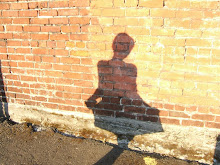
Paul Mataruse grew up in Zimbabwe. He attended Zimbabwean schools until high school when he decided to trade the Savannah-like climate for Canada’s chiller one. Mataruse knew that Zimbabwe’s higher education wasn’t for him, a choice based upon a personal desire to see the world and interact with students from other countries. Now, however, such choices (if one is lucky enough to consider going abroad) may be made based upon a completely different motivation.
The University of Zimbabwe, the National University of Science and Technology (Nust), Midlands State University (MSU) and Chinhoyi University of Technology (CUT) have shut their doors for the final semester in this academic year.
Some reports cite the horrible conditions of the schools themselves: no water, no electricity and no funds, said a report for University World News. But these conditions are products of the economic crisis that continues to wrack Zimbabwe. A report from The Zimbabwe Independent adds that there isn’t enough staff to keep the schools running. Teachers are so hideously underpaid that they have gone on strike to combat the inevitable poverty that such pay cuts bring.
It’s not just higher education that is suffering. Elementary schools are vacant as well.

“Children in green uniforms, others in red and white, blue and brown can be seen strolling down the road as they walk towards their respective schools.
It is now 8am, but most of them do not seem to be bothered by time although under normal circumstances they should be in class by 7.30am.
They let time pass, after all there is nothing to hurry for.
The school bell that used to ring signaling commencement of lessons ceased tolling a long time ago.
On arrival at their schools, the pupils do not head to the classrooms, but for the playgrounds where they engage in various games until somebody remembers that there are children at school.
The teacher arrives at 9am (she is early today) and the pupils are called into the classroom.
Not much time is wasted in the classroom and the pupils are given loads of work to do in English, Mathematics, and Shona before the teacher leaves to do personal errands.
The pupils are left to figure out for themselves how to tackle their schoolwork. The moment the teacher leaves the classroom, the pupils shove their books into their satchels and rush back to the playground.
They do not seem to be bothered by the absence of their teacher. They are happy that they are left to play, unaware of the consequences it has for them in the long run.”
This excerpt from an article in The Zimbabwe Independent illustrates the reality of education in a country whose future depends upon just that: the education of future leaders. With no universities and no elementary schools, how will Zimbabweans play a role in shaping the future of their country—especially at a time when such fresh direction is dearly needed?
Just as disturbing are the conditions of the teachers themselves. A United Nations Education Scientific and Cultural Organization survey from 2002 predicts that by 2010 Zimbabwe will loose 55,000 teachers to HIV and Aids. A more grim interpretation predicts the loss will total 60,000, reports The Zimbabwe Independent.
Teachers are standing their ground. The Progressive Teachers Union of Zimbabwe (PTUZ) is a militant labour union that stands up for teachers’ treatment and working conditions. “Our demand to the new government is simply that a ‘Teachers Treatment Action Campaign’ must be formed as a matter of urgency to address the serious HIV and Aids-related challenges teachers are facing,” the union said, as reported by The Zimbabwe Independent.

Without committed and healthy teachers, schools are useless. If an individual is dedicated to education, however, the word “school” could become more open ended in location. Perhaps the first step in strengthening the education system in Zimbabwe begins with the empowerment of the people themselves.
Images from Sokwanele's Flickr.

No comments:
Post a Comment